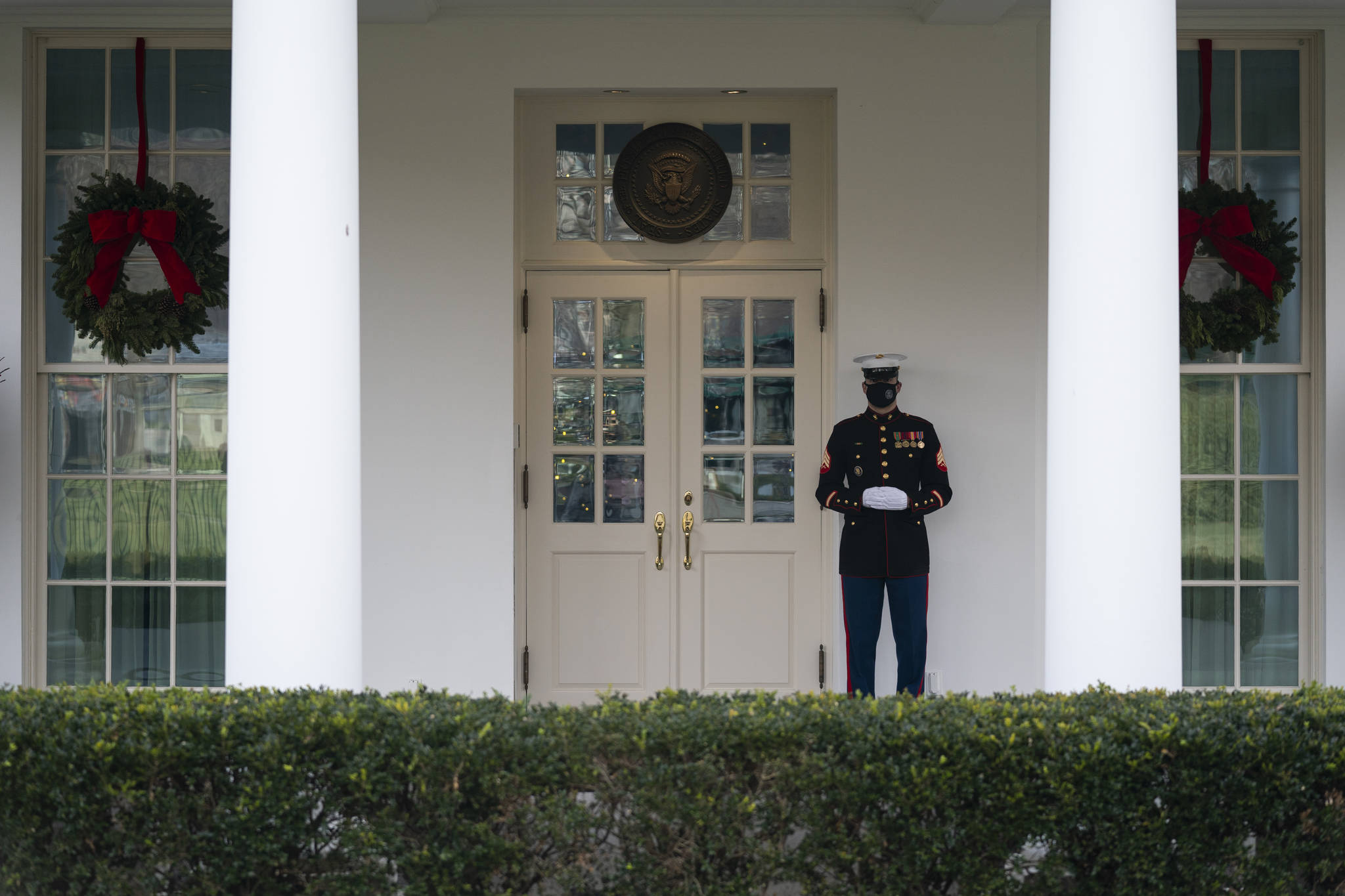This story has been edited to include a statement from Sen. Lisa Murkowski.
After vetoing the annual bill required to fund the military, President Donald Trump may have laid the ground for the first override vote of his administration.
The National Defense Authorization Act is an annual bill, voted on in Congress and signed off on by the president. If the veto is not overridden, this will be the first time in 60 years the NDAA doesn’t pass, said Sen. Dan Sullivan during a news conference late Wednesday.
“I plan to vote to override the veto. One of the things I’ve been very focused on is rebuilding the military. We’ve made very big progress. I was surprised by the president’s veto,” Sullivan said. “No bill is ever perfect. The NDAA has some things in it that I would not have preferred to have in it, but overall, it was a really strong bill not just for Alaska but for the country.”
Trump offered a number of reasons in the weeks before vetoing the bill. Among those was language in the bill that would allow for renaming military bases currently named after Confederate generals, such as Fort Benning or Fort Hood.
[Governor proposes big change for Alaska Department of Health and Social Services]
“It is incredible that the President chose to veto the annual National Defense Authorization Act, particularly because his reason for doing so is an issue not related to national defense,” said Sen. Lisa Murkowski in a statement. “Congress has passed a defense authorization bill for 60 years, which emphasizes the priority. In Alaska and across our nation, military members and their families are grappling with the challenges of COVID-19 while standing on the front lines of our national defense. This is a disservice to military members, their families, and our nation.”
Sullivan spoke to his role in a number of major bills which passed the House and Senate in the last few days.
“There’s been a lot of bipartisan work,” Sullivan said. “With this COVID relief bill, this will be the fourth major bipartisan legislation we passed in the senate in 2020.”
The relief bill included more than $740 billion for military programs and construction. $150 million of that was slated for construction in Alaska, Sullivan said.
A COVID-19 relief bill which would provide $600 for each citizen is also in jeopardy as Trump threatened to veto the $900 billion aid package, calling for increased payments of $2,000 to be made to most Americans. Trump also spoke against a number items in the bill including foreign aid.
“Alaskans need this targeted, emergency relief and they need it now. What they don’t need is last minute gamesmanship and threats, especially when the COVID-19 relief package we developed will also prevent an entirely unnecessary and avoidable government shutdown while also funding our government through FY2021—funding that is critical to nearly every sector of our country,” said said Sen. Lisa Murkowski, R-Alaska, in a statement. “I am calling on the President to swiftly sign the Consolidated Appropriations Act of 2021 into law.”
Rep. Don Young also voted for the bill, but appreciated Trump’s call for a greater amount of support to Americans struggling through the pandemic, said Young’s press secretary Zack Brown in a statement.
Spokespeople for Rep. Don Young did not immediately respond to requests for comment on whether they’d support an overriding vote specifically concerning the NDAA. However, Young like Sullivan and Murkowski voted for the NDAA.
• Contact reporter Michael S. Lockett at (757) 621-1197 or mlockett@juneauempire.com. Associated Press reporting contributed to this article.

